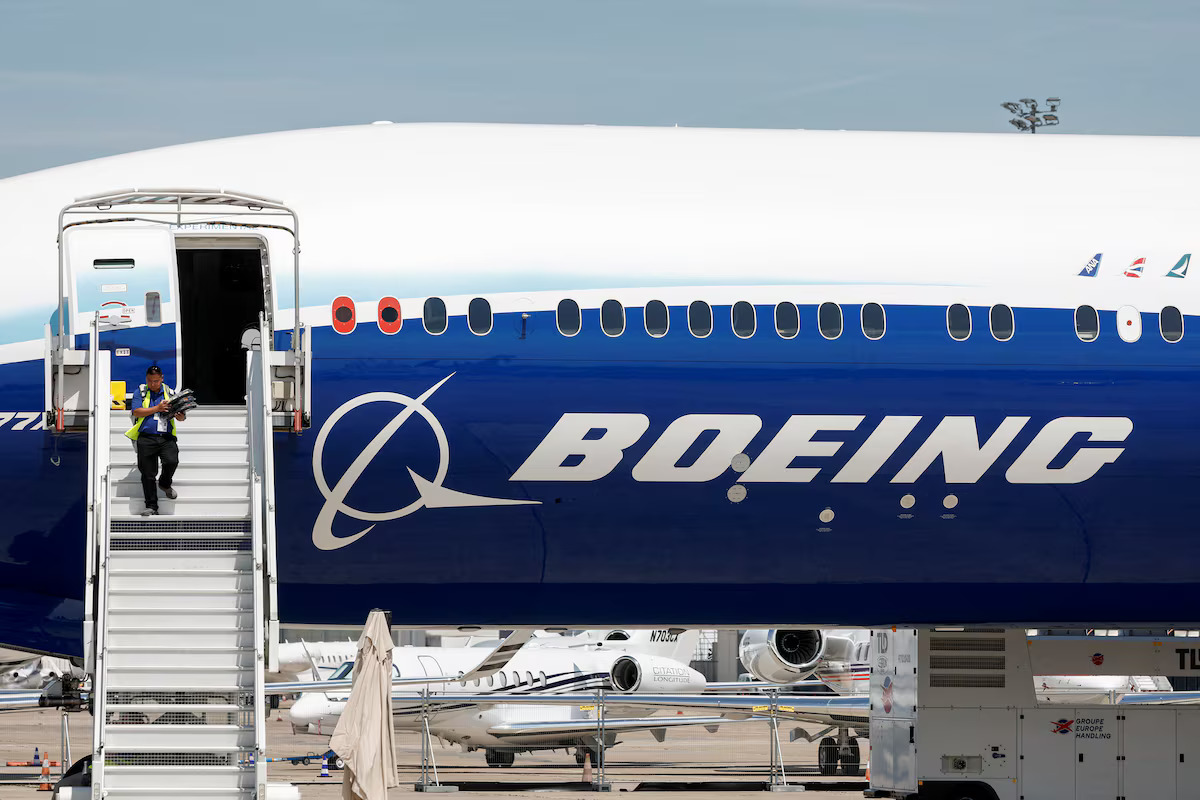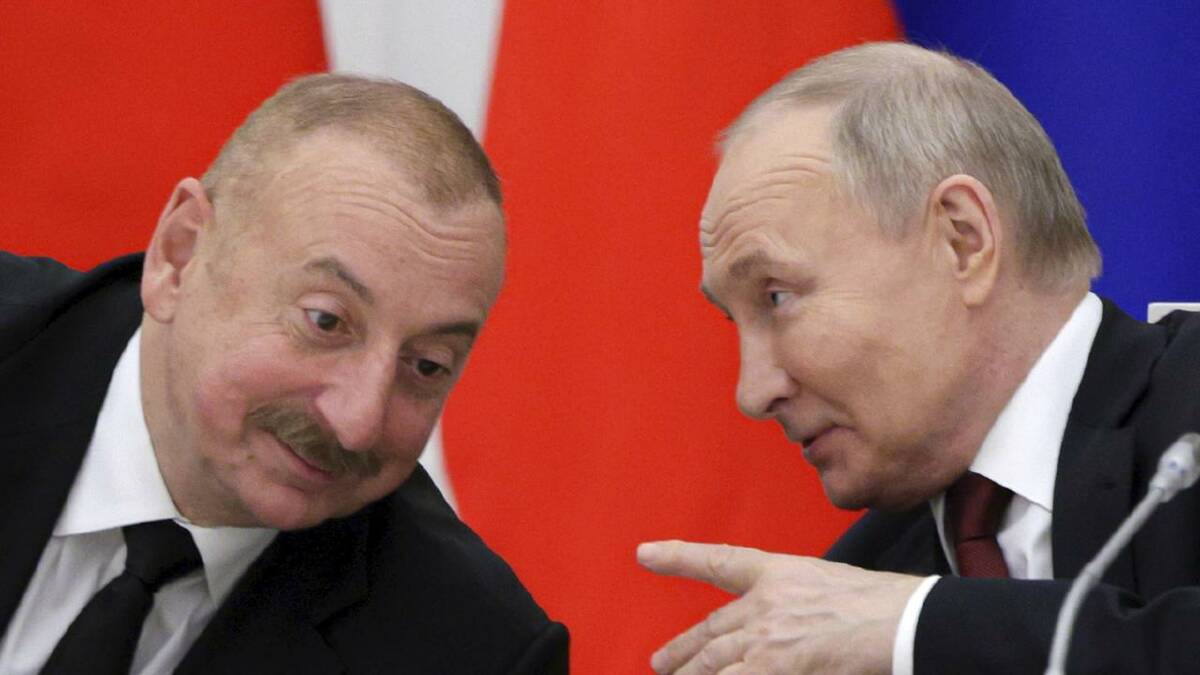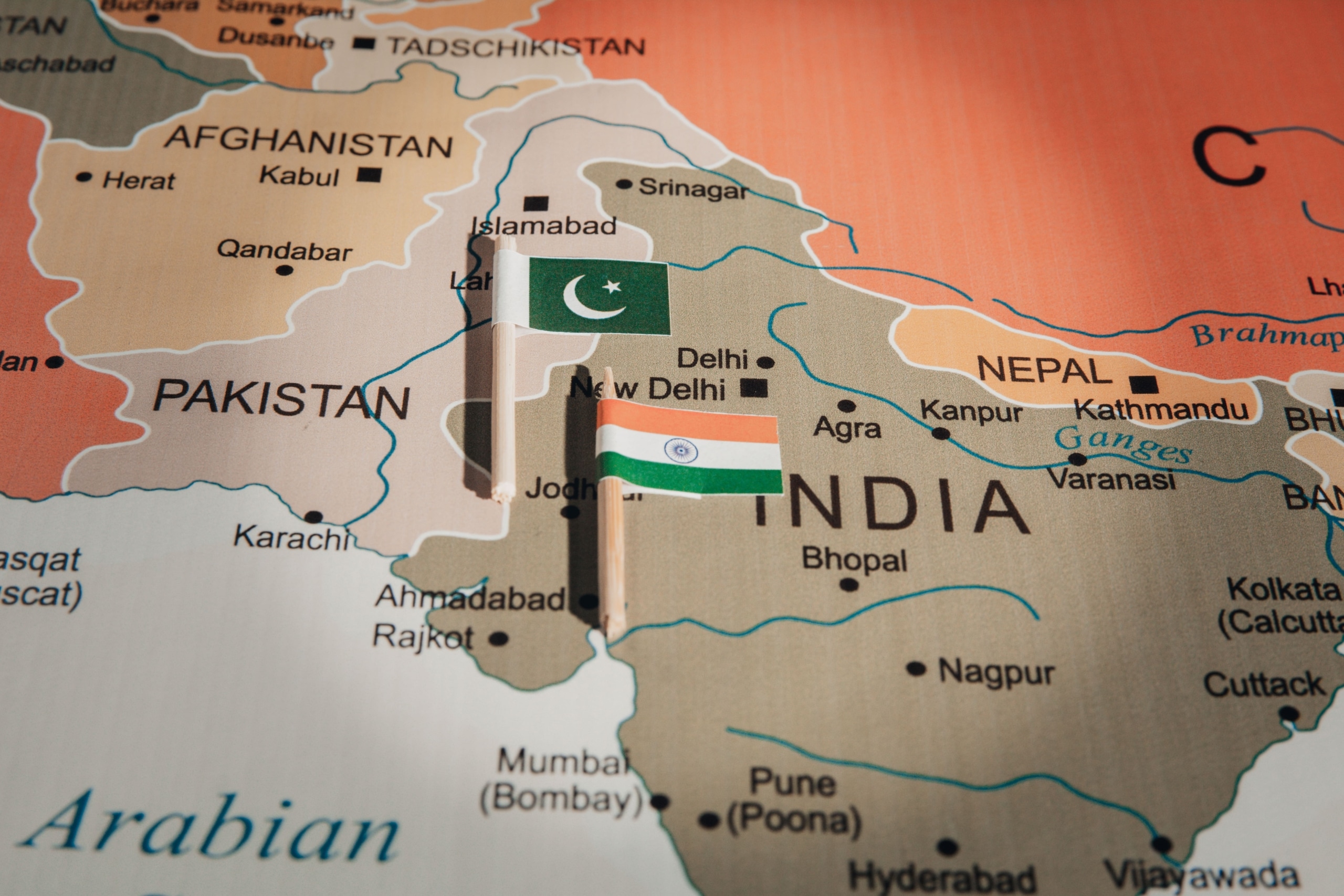Summit in Lachin: new stage of strategic partnership between Azerbaijan, Turkey and Pakistan
Trilateral summit in Azerbaijan
The trilateral summit in Lachin, bringing together the leaders of Azerbaijan, Turkey, and Pakistan, is seen as a key strategic move, signaling the emergence of a new geopolitical structure in the region.
Although the summit was organized to mark Azerbaijan’s Republic Day, the event was not purely symbolic. It served as a platform to present plans for deepening political, economic, and military integration. On the same day, the Lachin International Airport was inaugurated, becoming one of the infrastructural pillars of this process.
The summit also gained particular importance through bilateral and multilateral meetings between leaders, the signing of agreements, and the demonstration of shared political will.
International Lachin airport
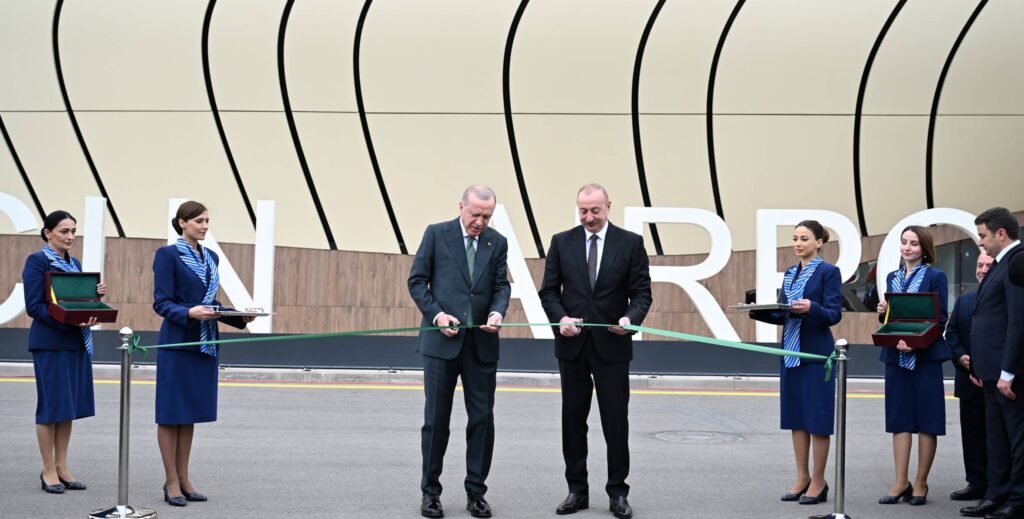
The Lachin summit and the opening of Lachin International Airport on the same day are seen as a strategic symbol from both a technical and political perspective. Located at an altitude of 1,800 metres, the facility has become the third airport built on territories reclaimed by Azerbaijan after the 2020 war, and the fifth civilian airport in the country overall.
According to information provided by the President.az website, the airport is equipped with a 3,000-metre runway, a terminal capable of handling 200 passengers per hour, a VIP lounge, and air traffic control systems that meet ICAO and IATA standards. The terminal covers 5,000 square meters and can accommodate multiple international flights simultaneously.
President Erdoğan described the airport as “a reflection of Azerbaijan’s vision for the future”, stressing that it would serve not only as a transport hub but also as a gateway for trade and tourism. President Aliyev, in turn, said the airport would be a key tool for the economic reintegration of the liberated territories and for expanding regional connectivity. It is also emphasized that the airport will strengthen links with Shusha, Kalbajar, and other districts, significantly boosting the region’s tourism and logistics potential.
The newly inaugurated Lachin International Airport has become Azerbaijan’s 13th civilian airport and the fifth in the Karabakh region. Officials claim the construction of new airports is aimed at developing tourism. However, local economists argue that the lack of a competitive environment and weak tourism infrastructure hinder tangible progress in this area.
Vahid Ahmedov, a member of the Milli Majlis, told the BBC that the airports in Karabakh may have not only political and economic but potentially also military significance:
“I think this is more connected to the military sphere. There may be aspects of such projects that are not disclosed to the public.”
According to him, airports are being built in tourist regions where sanatoriums and recreation areas are planned, and in this context, their construction is justified.
Geopolitical significance of summit and digital context
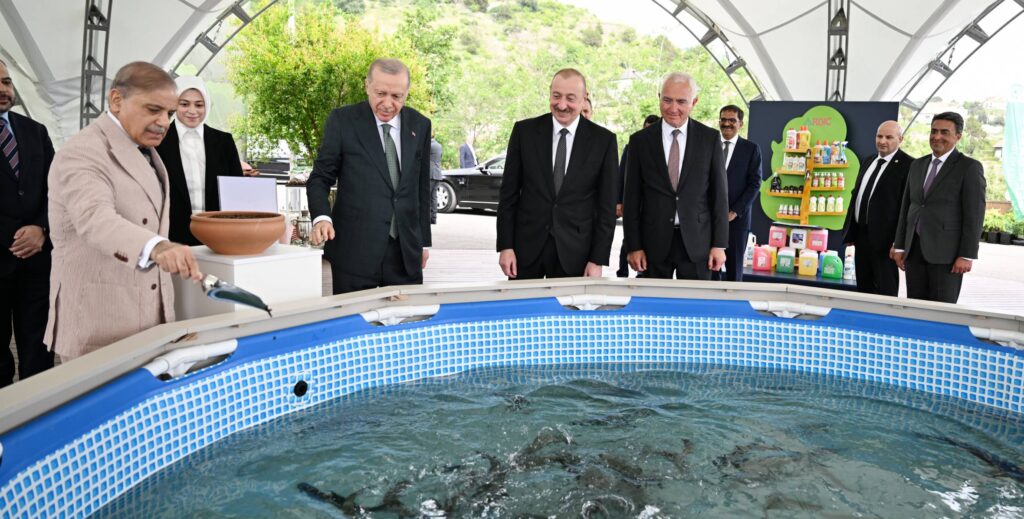
The Lachin meeting is regarded as a pivotal turning point in the regional balance of power. Attended by Azerbaijani President Ilham Aliyev, Turkish President Recep Tayyip Erdoğan, and Pakistani Prime Minister Shehbaz Sharif, the summit aimed to transform the emerging “brotherly alliance” between the three nations into a strategic partnership. This alliance could serve as an alternative platform for cooperation not only within the region but also within the broader global political framework.
In his speech at the summit, Erdoğan highlighted that the combined economic output of the three countries exceeds $1.5 trillion, with a total population of 350 million. According to him, under the guidance of foreign ministers, this trilateral cooperation will soon take on an institutional structure and translate into concrete plans in areas such as transport, energy, trade, defence, and counterterrorism. The leaders agreed to hold regular and consistent meetings in this format.
Shehbaz Sharif, for his part, stressed that the partnership should serve the well-being of their peoples and contribute to regional peace and stability. He reaffirmed Pakistan’s commitment to peace—hinting at recent clashes with India—and praised the support shown by Turkey and Azerbaijan in this process.
Economic synergy and investment prospects
At the summit, Azerbaijani President Ilham Aliyev stated that Azerbaijan has already invested over $20 billion in the Turkish economy. For Pakistan, an investment package worth $2 billion is also planned. These funds will be directed towards development in the fields of energy, industry, trade, digital transformation, and agriculture. The agenda also includes joint economic forums, reciprocal visits by investment delegations, and the creation of new financial institutions.
Aliyev also noted that cooperation with Pakistan’s defence industry will be expanded. This includes an agreement to increase the number of JF-17 Block III fighter jets purchased by Azerbaijan from 16 to 40 units. The value of the contract is approximately $4.2 billion, underscoring the deepening integration of the three countries in the defence sector. The aircraft are jointly produced in Pakistan and China and are of strategic importance for ensuring the security of the region’s airspace.
The Middle Corridor and INSTC — regional routes
The summit also addressed two key transport projects: the Middle Corridor (Trans-Caspian International Transport Route) and the North–South Transport Corridor (INSTC). These routes form a geostrategic network linking China, India, Central Asia and Europe. The Middle Corridor is particularly significant as an alternative route between China and Europe, connecting the Pacific and Atlantic Oceans.
The INSTC is a 7,200-kilometre multimodal route linking India, Iran, Azerbaijan and Russia. These corridors are intended to boost trade volumes, improve logistical efficiency, and strengthen the region’s geoeconomic relevance. The heads of state emphasised the importance of coordinated action by the three countries within these projects.
Security, peace and mutual support
At the summit, mutual support was expressed on the issues of Karabakh, Kashmir, and Northern Cyprus. According to Tribune and Arab News, Shehbaz Sharif described this solidarity as a “meeting of hearts and souls of sincere friends.” President Aliyev, recalling the importance of decisions in line with the UN Charter, called for dialogue regarding the conflict between Pakistan and India.
The summit was also characterised as a reaffirmation of Turkey’s and Pakistan’s support for Azerbaijan during the 2020 war, and of Azerbaijan’s moral and diplomatic support for Islamabad amid recent clashes between India and Pakistan.










